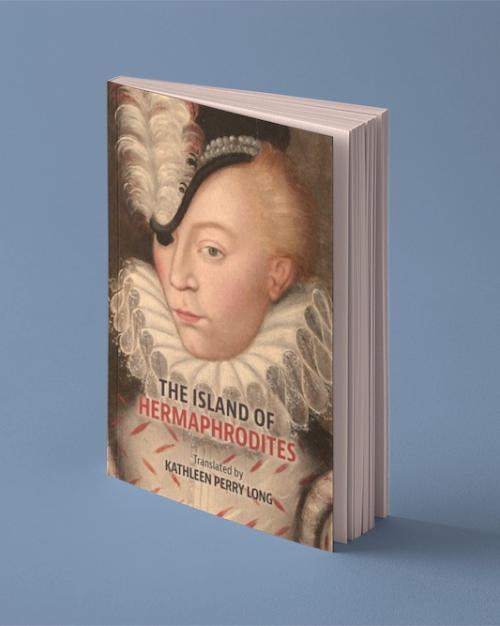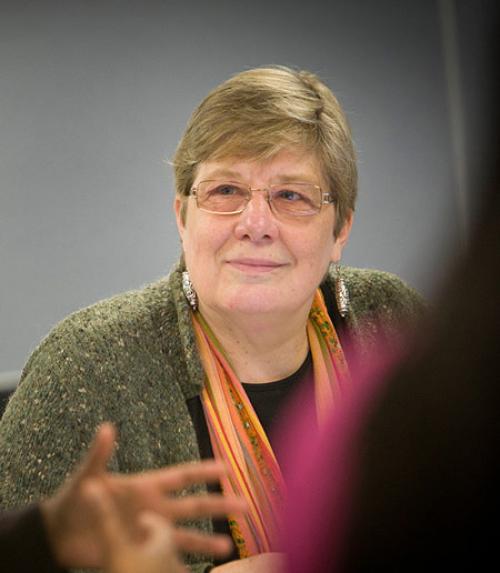What can the past tell us about our present moment? How can a deeper understanding of the formation of race across centuries contribute to our practice of resistance now?
On May 13-14, will host “Global Early Modern Formations of Race and Their Afterlives,” a virtual conference organized by Professor of French Kathleen Long that will bring together prominent Early Modern scholars working in the area of race formation with fellow scholars, members of the Cornell community and the broader public. The conference will continue an ongoing conversation about early modern formations of race and their enduring presence in the contemporary world.
The culmination of ’ Conversations on Race series, the conference will host lectures from 4-6 p.m. EDT Friday and 1-3 p.m. EDT Saturday, with a special workshop for graduate students working on topics in early modern race formation to be held on Sunday.
Friday’s talks will feature Ayanna Thompson, “On Protean Acting in Shakespeare: Race & Virtuosity”; and Jennifer Morgan, “Reproducing Race: Kinship and the Market in the Early Black Atlantic.”
Saturday’s will include Anna More’s “The Iberian Company: The Early Slave Trade and War Capitalism," and Farid Azfar’s "Racial Leviathan: Making Peace with the Asiento, 1518-1857."
All of the scholars presenting at the conference have deep roots in Early Modern race studies and the Early Black Atlantic. Their work examines how settler operations and the mass enslavement of Africans are intertwined within colonialism, and still profoundly shape both the experiences of Indigenous people and those of the African diaspora, along with historical and present-day resistance to those actions. For our contemporary moment, the desire for freedom and justice and defense of their cultures continue to move Indigenous and Afro-diasporic artists and activists around the world to reclaim their time and space.
Advance registration is required by May 13.
To register, please visit the following pages:
For more on the presenters:
Ayanna Thompson – A professor of English at Arizona State University, where she studies Shakespeare, race and performance, Thompson is also the director of the Arizona Center for Medieval & Renaissance Studies and the creator of the RaceB4Race symposium. Her most recent work, Blackface is part of Bloomsbury’s “Object Lessons” series and examines the roots, history, examples and legacies of blackface from the Early Modern stage to the twenty-first century. Among many other works, she is also the author of Passing Strange: Shakespeare, Race, and Contemporary America (Oxford University Press, 2011), a Shakespeare Scholar in Residence at The Public Theater in New York, and the former president of the Shakespeare Association of America.
Jennifer Morgan – Morgan is a professor of social and cultural analysis and history at NYU, where is she is also chair of the Department of Social and Cultural Analysis. Her research examines the intersections of gender and race in the Black Atlantic world, and her newest book, Reckoning with Slavery: Gender, Kinship and Capitalism in the Early Black Atlantic will arrive from Duke University press later this month. Morgan is also the author of Laboring Women: Gender and Reproduction in the Making of New World Slavery and the co-editor of Connexions: Histories of Race and Sex in America.
Anna More – At the Universidade De Brasília, More specializes in the colonial period of the Iberian Americas, with a particular focus on baroque aesthetics, historiography, and race in colonial Mexico. Her first book, under contract with the University of Pennsylvania Press, examines the relationships among baroque aesthetics, imperial politics, and the formation of a local archive in colonial Mexico.
Farid Azfar – is an Early Modern European historian at Swarthmore College whose teaching and research investigates the intersections of Atlantic history, the history of ideas, the history of sexuality and urban history. Azfar is currently at work on a book about the comparative, intellectual and cultural history of the asiento contract of 1713. His work has been published in The Journal of British Studies, Historical Reflections/Réflexions Historiques, The London Journal, and The Eighteenth Century: Theory and Interpretation.
The event is co-sponsored by the Global Early Modern Studies Colloquium (GEMS), the Central New York Humanities Corridor, and the Society for the Humanities.





